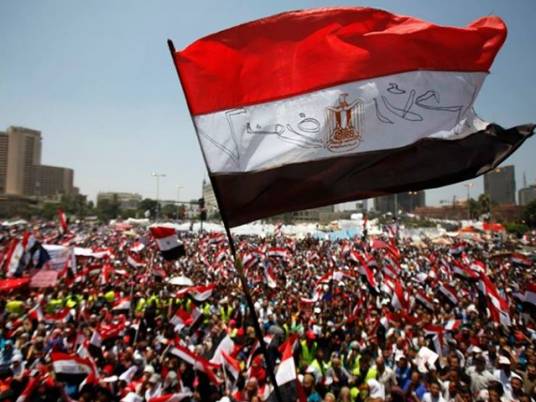
In his famous book, ‘Paix et guerre entre les nations’ (Peace and War Between Nations), French philosopher Raymond Aron comments on the strategy of terrorism, stating that it “seeks to not only destroy many lives in bloody massacres, but also the lives of those who hear about these massacres.”
Media experts believe that modern terrorism and extremist groups cannot survive without a media that promotes them and their actions, whether through praise or slander.
This belief is supported by a theory in discourse analysis, which states that when one interacts with discourse (written and spoken communications), there is a moment in which they consider and give importance to the presented idea, even if they eventually intend to criticize it.
When the media reports on terrorism, it is actually doing more harm than good, as the extremist groups are gaining a free platform from which they can broadcast their extremist ideologies.
It is no secret to anyone that the Muslim Brotherhood and other fundamentalist factions are actively exploiting the communication technology that is provided to them from wealthy foreign investors, in an attempt to influence public opinion and gain control of the media narrative.
In its media campaign against Egypt, the Brotherhood’s discourse reflects a relentless pursuit to mislead public opinion of the country in two ways. First, by creating the illusion that state services are actively deteriorating, and second, by skeptically questioning any of the government’s economic and social achievements.
In order to provoke indignation and public disapproval, the Brotherhood broadcasts stories, images, and video snippets that are reminiscent of Indian Bollywood films, displaying a sharp contrast between the wealthy and the poor. These scenes reinforce the association people make between poverty and social injustice, as well as wealth with power and indifference.
The Muslim Brotherhood media sees no issue in fabricating media clips and creating dramatic narratives that highlight scenes of pain and suffering in Egyptian society. In reality, all societies around the world are full of such tragic and touching scenes.
Moreover, a media services company recently revealed that the images and video clips of current protests happening across Egypt were fabricated and related to past events.
The Brotherhood’s discourse also ignores the tremendous achievements of the Egyptian government and rather discredits its projects, stating that their sole purpose is to serve the government’s own goals and interests. The discourse here is intended to make citizens feel like the government does not care about them.
In the face of these disinformation campaigns, the Egyptian state media discourse seeks to uncover the forgery and lies brought forth by the Brotherhood.
State media has shown live coverage of the numerous internationally recognized accomplishments and massive infrastructure developments that the country has undertaken in a very short time.
While this kind of discourse has played a major role in exposing the Brotherhood’s lies, it is not enough. It has now become necessary to arm the state media with additional tools to cut off the skepticism and falsification that characterize the Brotherhood’s discourse. Among the most prominent of these tools is the strategy of persuasion.
Persuasion stipulates that when it comes to swaying public opinion, the media should not limit itself to large-scale coverage of the government’s development projects and the positive global reaction to them. Rather, its discourse should highlight how these projects are positively impacting the lives of Egyptians, such as when the government lowers the prices for basic household necessities.
For example, there are neighborhoods in Egypt filled with dilapidated houses on the brink of collapse. The destitute youth living there did not have the ability to acquire adequate housing for themselves or their families, so the Egyptian government intervened and quickly built more than 335,000 housing units for the people in new neighborhoods and cities.
Similarly, the Egyptian Administrative Control Authority (ACA), has undertaken the challenging task of rooting out rampant corruption in Egypt’s various administrations. Ridding the state’s several departments of corrupt employees increases public trust in these departments, and therefore in the state.
The ACA transparently provides details of the incidents and the names of the individuals involved in its anti-corruption campaigns, sharing its accomplishments with the public rather than extending a vague description of its activities. In doing so, the authority eliminates the possibility of other media outlets twisting the story and fostering mistrust.
If Egyptian state media moves from broader achievements to focusing on everyday life for Egyptians and maintaining transparency, there is no doubt that it will strengthen its persuasive power.




